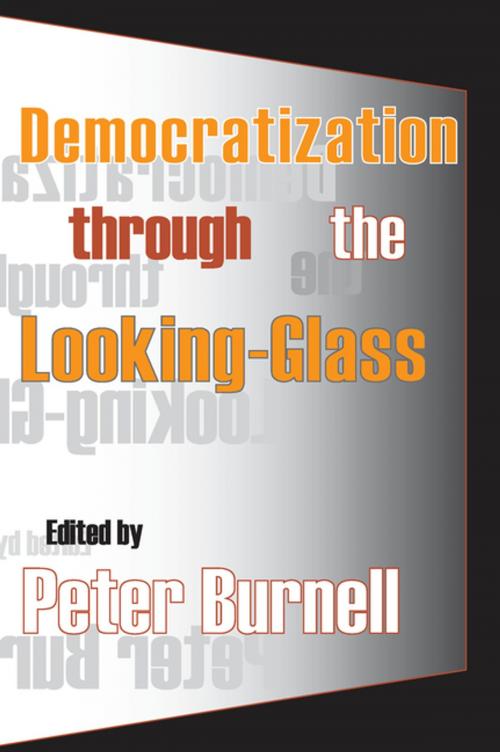Democratization Through the Looking-glass
Nonfiction, Social & Cultural Studies, Political Science, Government, Democracy| Author: | ISBN: | 9781351522786 | |
| Publisher: | Taylor and Francis | Publication: | February 6, 2018 |
| Imprint: | Routledge | Language: | English |
| Author: | |
| ISBN: | 9781351522786 |
| Publisher: | Taylor and Francis |
| Publication: | February 6, 2018 |
| Imprint: | Routledge |
| Language: | English |
In Democratization through the Looking-Glass, Peter Burnell provides a revealing image of how our knowledge and understanding of democratization could be improved by viewing the topic through a more multi- disciplinary lens and from the perspective of more broadly based comparative analyses. Burnell and his contributors encourage readers to both "look and think outside of the box," beyond the limited parameters that usually shape the study of democratization.
The goal of Democratization through the Looking-Glass is to pursue a more comprehensive understanding of democratization as a process taking many forms rather than just as a political phenomenon. With a viewpoint from a wider multi-disciplinary stance, and broader global geopolitical knowledge base, the contributors hope to get readers to better recognize and address gaps in the political science literature on the subject of democratization. The contributors seek to do this by specifically: explaining what democratization is while also making sense of the wide variety of experiences undergone by different societies at different times going through this very process; anticipating the wider effects of democratization's consequences for all human conditions at all levels; and critically assessing strategies for extending and deepening democracy by improving its positive qualities and chances of being sustained in societies into which it is introduced.
This volume takes readers in the direction of predicting and foretelling the future of democracy and democratization with greater accuracy. In all, Democratization through the Looking-Glass provides a wide-ranging review of themes, issues, and topics concisely written by leading experts in their fields while advancing its case for more inclusive comparative studies covering Europe and North America, as well as developing regions, showing precisely how multi-disciplinary approaches enhance a global vision and understanding of democratization.
In Democratization through the Looking-Glass, Peter Burnell provides a revealing image of how our knowledge and understanding of democratization could be improved by viewing the topic through a more multi- disciplinary lens and from the perspective of more broadly based comparative analyses. Burnell and his contributors encourage readers to both "look and think outside of the box," beyond the limited parameters that usually shape the study of democratization.
The goal of Democratization through the Looking-Glass is to pursue a more comprehensive understanding of democratization as a process taking many forms rather than just as a political phenomenon. With a viewpoint from a wider multi-disciplinary stance, and broader global geopolitical knowledge base, the contributors hope to get readers to better recognize and address gaps in the political science literature on the subject of democratization. The contributors seek to do this by specifically: explaining what democratization is while also making sense of the wide variety of experiences undergone by different societies at different times going through this very process; anticipating the wider effects of democratization's consequences for all human conditions at all levels; and critically assessing strategies for extending and deepening democracy by improving its positive qualities and chances of being sustained in societies into which it is introduced.
This volume takes readers in the direction of predicting and foretelling the future of democracy and democratization with greater accuracy. In all, Democratization through the Looking-Glass provides a wide-ranging review of themes, issues, and topics concisely written by leading experts in their fields while advancing its case for more inclusive comparative studies covering Europe and North America, as well as developing regions, showing precisely how multi-disciplinary approaches enhance a global vision and understanding of democratization.















